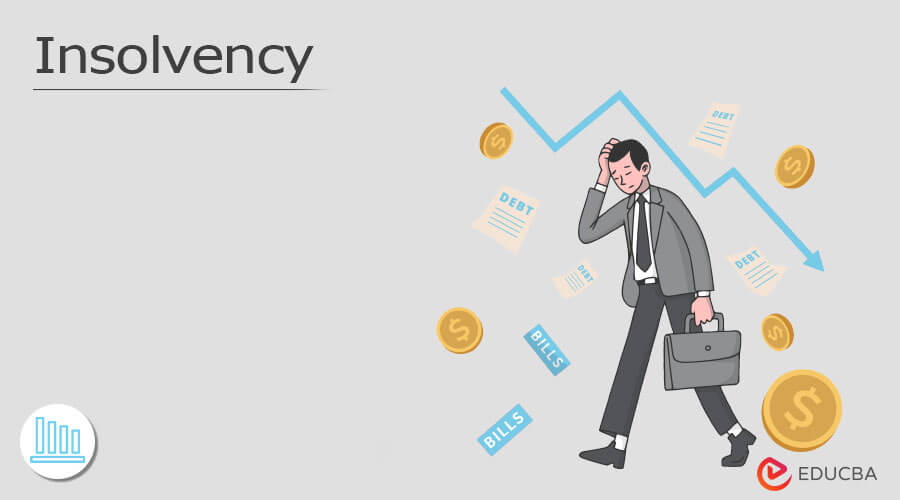What Does Insolvency Practitioner Do?
What Does Insolvency Practitioner Do?
Blog Article
Not known Facts About Insolvency Practitioner
Table of ContentsThe Basic Principles Of Insolvency Practitioner Insolvency Practitioner for DummiesAn Unbiased View of Insolvency Practitioner4 Simple Techniques For Insolvency PractitionerSome Known Questions About Insolvency Practitioner.The Greatest Guide To Insolvency PractitionerInsolvency Practitioner Can Be Fun For Anyone
Insolvency is when responsibilities are more than the value of the business, or when a borrower can not pay the financial debts they owe. A firm can become financially troubled because of a number of situations that cause bad capital. When faced with insolvency, an organization or individual can contact creditors straight and restructure financial obligations to pay them off.
Bankruptcy can lead to insolvency proceedings, in which lawsuit will be taken versus the insolvent person or entity, and possessions. Insolvency Practitioner might be liquidated to pay off arrearages. Organization proprietors may get in touch with financial institutions directly and restructure debts right into more workable installments. Lenders are generally open to this approach since they intend to be settled and prevent losses, also if the settlement is on a delayed routine.
The owner produces a proposition detailing how the debt may be restructured utilizing price reductions or other prepare for assistance. The proposal shows lenders just how the business might produce adequate cash flow for lucrative procedures while paying its financial obligations. Normally, a forgiven financial obligation might be thought about earnings by the Irs (INTERNAL REVENUE SERVICE).
10 Simple Techniques For Insolvency Practitioner
When a company has to pay raised rates for products and services, the business passes along the expense to the consumer. As opposed to pay the boosted price, several customers take their organization somewhere else so they can pay less for a product and services. Shedding clients causes shedding revenue for paying the company's lenders.
The business may wind up paying large amounts of cash in damages and be overcome procedures. When procedures cease, so does the company's income. Lack of earnings causes unsettled bills and lenders requesting cash owed to them. Some companies become financially troubled because their products or services do not evolve to fit consumers' transforming needs.
The Of Insolvency Practitioner
Expenditures go beyond profits and expenses stay unpaid. Cash-flow bankruptcy takes place when a business has the assets to cover their debts but they are in the wrong form, such as real estate instead of fluid funds. Balance-sheet insolvency, on the other hand, indicates a lack of possessions in any type of type to cover financial debts.
The IRS states that a person is financially troubled when the complete responsibilities exceed overall assets. Insolvency Practitioner. A personal bankruptcy, on the other hand, is an actual court order that depicts just how a bankrupt person or organization will settle their creditors, or exactly how they will sell their assets in order to make the repayments
The Single Strategy To Use For Insolvency Practitioner
If that scenario expands longer than expected, it can result in insolvency. When a firm or individual is bankrupt, they can not fulfill their monetary commitments. Solvency is when you have adequate funds to cover the settlements you owe. A firm is taken into consideration solvent when they have extra possessions than responsibilities.

Understanding the elements that can cause insolvency, such as overspending, can aid you protect against bankruptcy and its repercussions.
The Single Strategy To Use For Insolvency Practitioner
It is well understood that directors and officers of firms (and supervisors of limited liability firms) owe fiduciary tasks to their Extra resources organizations and their investors (or participants). These fiduciary responsibilities are specified by state statutes and, though there are variations from one state to another, they commonly consist of an obligation of commitment and a duty of treatment.
The task of treatment needs directors and police officers to work out persistance, to make informed decisions, and to act in excellent belief to ensure that their activities remain in the very best passion of the firm. Beyond the range of this conversation, some states permit these duties to be restricted either by so keeping in mind in the business papers or abiding with other needs.
Some Known Details About Insolvency Practitioner

Be mindful regarding giving investors favoritism at the expense of lenders (e.g., authorizing and moneying a reward or a supply redemption). Beware about special treatment between classes of shareholders. Clear up initiatives to find out all the facts prior to taking a specific strategy; directors must truly believe that any decisions made are in the most effective passions of the firm in its entirety (i.e., decisions will be reviewed in knowledge because of the impact of such activities on the firm).
In any type of insolvency or bankruptcy case, repayments made to particular creditors at the expense of various other financial institutions can be clawed back, particularly if there is some link between the business and the lender. Consider proposing at a yearly shareholder conference (or view it any kind of other meeting of investors) a resolution affirming that all previous service decisions and activities taken by the supervisors and police officers of the company were taken in excellent confidence after an exercise of affordable care.
Little Known Questions About Insolvency Practitioner.
Totally disclose any kind of individual or service partnerships with events on the various other side of deals involving the firm to avoid the appearance of a conflict of rate of interest. In evaluating possible fund elevating transactions or a sale of assets of the distressed firm, know that these transactions may be scrutinized later because of any type of subsequent expansion of supervisors' fiduciary duties to consist of creditors.
Report this page